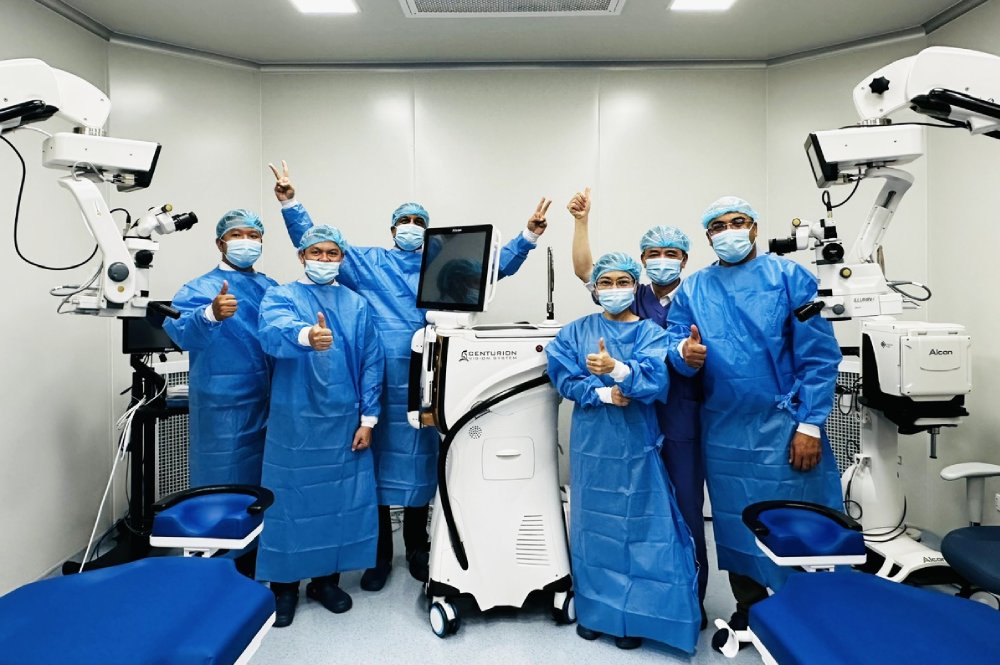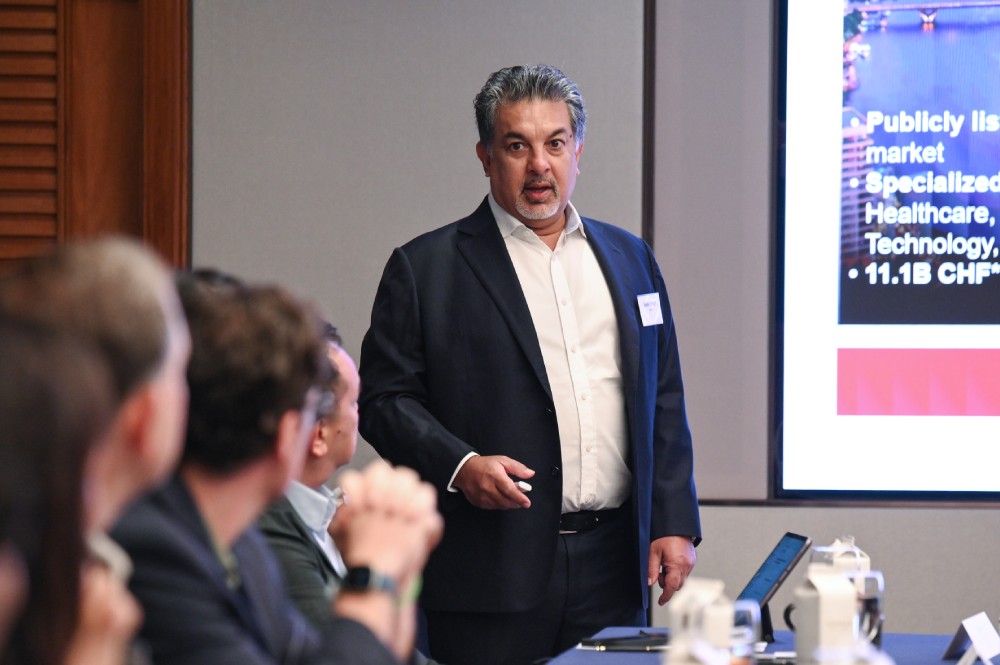In exactly five words, how would you describe what you do at DKSH to someone you’re meeting for the first time?
Bring better healthcare to patients.
DKSH has a diverse portfolio spanning various sectors. How does the company leverage its expertise in technology to not only improve patient care but also support other aspects of the healthcare ecosystem, such as supply chain management or pharmaceutical distribution?
At DKSH, we aim to revolutionise healthcare by fully leveraging technology across all our services. At our distribution centres, we prioritise technology integration. For instance, our in-warehouse Automated Storage and Retrieval Systems (ASRS) eliminate human errors when handling medications like insulin, ensuring precise administration and preventing harm.
We also go beyond traditional clinical support, focusing on empowering patients through our “beyond-the-pill” services. Through platforms like PSPhere, we digitalise and elevate patient engagement, enabling access, adherence, and convenience throughout their healthcare journey.
Additionally, we forge partnerships with HealthTech pioneers to extend access across diverse Asian markets. As the appointed distribution partner, DKSH Singapore recently introduced the Dexcom G6 Continuous Glucose Monitoring System (CGM). This game-changing device wirelessly measures and transmits real-time glucose levels, eliminating the need for finger pricks.
At DKSH, we understand that patient-centred care is the future of healthcare. By fully harnessing technology’s potential in all our services and offerings, we pave the way for a transformative and holistic healthcare experience.
With the increasing use of data analytics and artificial intelligence in healthcare, how does DKSH ensure the responsible and ethical use of patient data while still leveraging its potential to drive innovation and improve healthcare outcomes?
First and foremost, we ensure that any data pertaining to the patient and the patient’s journey is collected only with consent. We are also transparent about how their data is collected, processed, and utilised.
To achieve this, we embed security in our solutions during the design phase. Additionally, our systems fully comply with all security and privacy requirements defined by regulatory bodies in the industry.
On top of that, we take a holistic approach to managing our patients’ data, believing that collecting both positive and negative information about the patient experience is key to enhancing the patient journey and their health outcomes. Striking the balance between patient confidentiality and implementing new technologies is crucial to harnessing the full potential of innovation safely and effectively.
In your opinion, what role should governments, private organisations, and healthcare providers play in fostering the intersection of health and technology, and how can they collaborate more effectively to drive positive change?
In healthcare, it is rare for any single organisation to own the full spectrum of care. Additionally, patients have higher expectations for personalisation and engagement since the pandemic. This is where partnerships can make a real impact.
Integrating in-person consultations with telehealth services, for instance, is paving the way for creating an ecosystem that revolves around the continuum of care. This can have a massive impact in Southeast Asia, where the physician-to-population ratio in some countries is less than 10 physicians per 10,000 population counts.
Another great example that illustrates the power of partnerships is Singapore’s healthcare transformation program, Healthier SG. The program marks the shift from reactive care to proactive care to improve the population’s health.
Since March 2022, the Ministry of Health has engaged more than 6,000 residents, private general practitioners, and community stakeholders to design the key features of the program.
Opportunities for partnerships to improve healthcare are vast and diverse. By collaborating and leveraging each other’s strengths, we have a real opportunity to inch closer to a reality where healthcare is truly for all.
Looking ahead, what emerging technologies or trends do you believe will have the most significant impact on the healthcare industry in the next decade, and how is DKSH preparing to embrace and leverage these advancements?
Undoubtedly, artificial intelligence (AI) has gained significant attention owing to its potential to revolutionise diagnosis, treatment, and patient care. With vast use cases, from data analysis, personalised medicine, and medical imaging interpretation all the way to drug discovery, we can expect AI and patient-centric innovations to take centre stage in the next decade.
Another notable trend to watch out for is the adoption of the Internet of medical things (IoMT). Medtech firms are increasingly adopting such solutions, and APAC is estimated to emerge as the fastest-growing market in the connected medical devices segment by 2024, according to KPMG.
We see ourselves as a key player in helping end consumers embrace such new technologies and trends through our supporting services, such as our in-house nurse educator, reducing patient inertia to try something new.
When you look at the state of the world today, what is the one thing that gives you hope?
In the early stages of COVID-19, scientists expected the global death toll to be at the levels last seen during the 1918 flu pandemic (estimated at 20 to 50 million) or even the Black Plague (estimated at 75 to 200 million). Currently, the number of cumulative deaths is about 7 million (as reported by WHO) which, in my opinion, is a huge victory for mankind and medical science.
Advancements in medical science have seen certain late-stage cancers cured and early detection of heart diseases via AI. I am hopeful that in the next few years we will see medical breakthroughs in dementia treatments and that more types of cancer will be curable.









